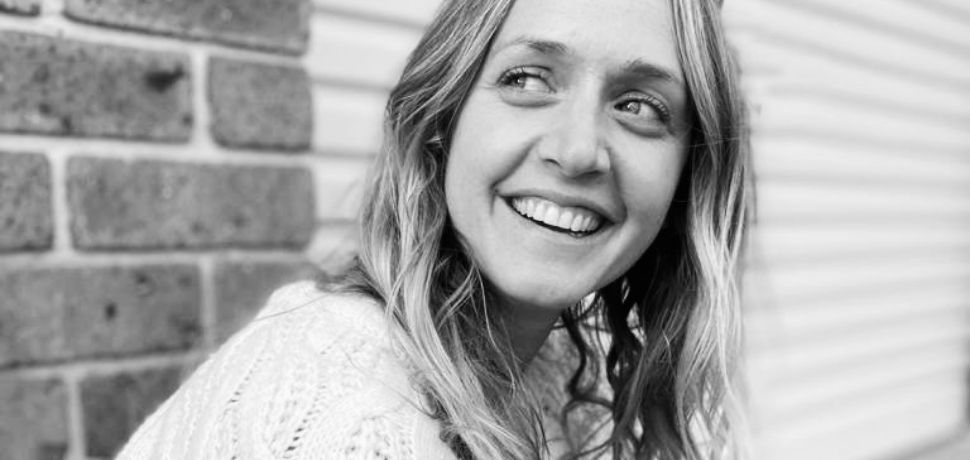How can we think more creatively about supporting our artists wellbeing?

DH Lawrence, the prolific writer and poet wrote, “Once a book is fathomed, once it is known, and its meaning fixed or established, it is dead.” The pressure on artists to create something that has the power to move us, and move us differently each and every time is an immense feat.
Throw into the mix complex relationships, chronic anxiety, financial instability, insufficient sleep and the uncertainty of their ability to sustain their creative passion and business, it’s no wonder our artists are stifled, exhausted and jaded.
I’ve witnessed musicians have multiple panic attacks on the lead up to a tour that continued to go ahead, and a manager who suffered a seizure only to return to the festival circuit two weeks later because the show must go on.
I’ve heard stories of artists calling helplines between interviews and public appearances in the height of their career, and watched others speak out about sexual abuse and have their team treat it as a “personal problem”.
What message are we sending to each other?
When did we lose our humanness?
Where does the responsibility of an artist’s team fall in the wake of an inevitable crisis?
Artists are at the epicentre of the music industry ecosystem. Their ability to create quality art freely and easily, is directly related to their mental, emotional, physical and creative health. I believe that changing the way we support and nurture our artists is a key step toward the positive changes and evolution we need in this industry.
Whilst working as a music manager, I saw a clear missing link in an artist’s team. Where was the person who supported the artist through the personal breakdown? The inability to write? To help them make big career decisions whilst not looking to gain a % of their income? To educate them on navigating the intensely personal job of social media as a constant daily aspect of their career? And whose job was it to support them with chronic anxiety, bouts of depression and creative blocks, let alone their basic health needs through gruelling tour schedules and unrealistic creative deadlines?
There is a lack of clear and defined responsibilities and duty of care for an artist’s wellbeing in the music business. A manager’s strategic and organisational role is already over capacity and to provide the appropriate support needed for these challenges can be a complex role for them to take on, especially when they’re trying to create professional boundaries.
So how can we think more creatively about supporting artists?
There is a new evolving landscape of practitioners and advisors who understand the complexities of a creative’s career, offering the skills, therapies and knowledge to transform your artist’s experience. Outsourcing this kind of niche support takes the pressure off the existing teams, whilst serving a critical need.
What could change in the way of collective mental health for this industry, if we begin to manage an artist’s holistic wellbeing in the same way as we would other critical functions such as finance, public relations, styling, etc. and build in this external resource to nurture our artists?
My work as a Creative Advisor has been developed to meet this essential need. I’m inspired to change the perspective of how we support our artists, to move away from a complex and misunderstood environment to one of co-creation, empowerment and trust for the artist’s within themselves and in collaboration with their teams.
Other creatively-versed practitioners who work in this space, range from more well-known therapies like psychology and counselling, to kinesiology, meditation, breathwork, somatic healing and holistic body therapies. Each have their own unique approach to support the specific needs of the client.
Many artists live from their internal epicentre of emotions and sensations. They aren’t crazy. They have visionary minds and an attuned internal perception of the world to be able to create great art. Remaining connected to these emotions, whilst navigating the commercialisation of their art, requires conscious commitment and persistence.
An artist not connected to this centre is a blocked, sick and unhappy creative being. When an artist feels connected to their creativity, understands their values, has the skills to ground themselves and feels safe and trusting of their team… that makes for a harmonious system for all.
For managers curious about how to begin making this change within their own teams, the first step is to start a conversation about holistic wellbeing with your artists. That looks like, setting up a face to face or virtual coffee date (note, not drinks) and asking the questions: How could you feel more supported in your career right now? What are your challenges mentally, physically, emotionally AND creatively? What are you struggling with? What could support look like for you?
The more we ask these kinds of questions and respond sensitively to their answers, the more independent and inspired your artist will feel and the more enjoyable your artist will be to manage.
As an artist, it takes a ton of courage to bare your soul, your private moments and life experience with the world, knowing they will be judged, scrutinised, disregarded or God forbid not picked up by triple j. When that extraordinary courage is understood, nurtured and actively supported, you can weather the storms together.
We can’t change the erratic demands and nature of the music business overnight nor can we ever change the non-linear, intricate and sensitive phenomenon that is creative process, but a strong place to start is to change the way we view this delicate resource and the people we rely upon to create the vital energy that sustains this essential industry.
This article originally appeared on The Industry Observer, which is now part of The Music Network.


































